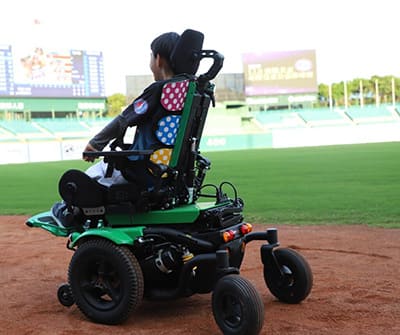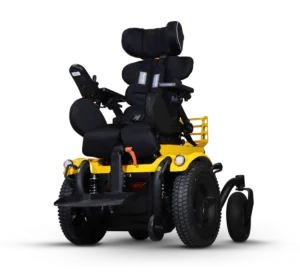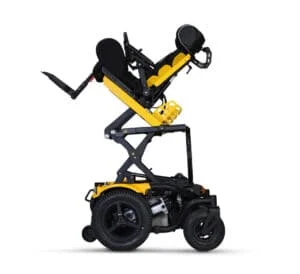Traditionally, power mobility was used as a last resort as a result of failing to walk. Children are expected to walk as much as possible, even though their ambulation was not functional or effective. However, studies have shown that abnormal pathological gait patterns increase muscular demands and energy consumption. The ability to ambulate declines as a child grows older and heavier (Johnston et al., 2004; Rose et al., 1989). It seems that the way we encourage children to explore their environments does not have to be just walking.
In the past, doctors, therapists, and parents were hesitant to use powered mobility because it might make the child become “lazy” or unmotivated to work on their walking skills. However, this study demonstrated that providing powered mobility didn’t obstruct the development of walking skills (Bottos et al., 2001). They also found that the ambulation potential can often be predicted by 3 years of age. Therapists are trained to evaluate childhood milestones of walking and will develop related treatment plans to help a child achieve those milestones. So, think about the importance of early effective mobility and provide children with alternate ways to be independent, which will promote the development of cognitive skills and psychosocial skills.

Providing powered mobility doesn’t mean that your child can’t continue to work on walking training.
On the other hand, providing powered mobility doesn’t mean that your child can’t continue to work on walking training, but it provides independence and development in the meantime. Maybe they can try using different mobility solutions in different environments. At home or in the rehab clinic, children can be more effective for short distances or go for walking training. At school or outdoors, the child can use an independent power wheelchair to navigate and keep up with their family members and peers.
Sneak peek at Kameleon before our official launch. Approx. 2021 Q4

Ken Chen, PT, MS, ATP
Global Product Training and Development Manager
Ken has 10 years of experience as a physical therapist in the area of wheelchair seating/mobility. Ken took on the role of Product Manager for Karma in 2012 and was responsible for the research on user needs and market trends for product development. In 2015, Ken got certified Assistive Technology Professional (ATP) accredited from RESNA.
In 2018, Ken was transferred to the sales department in Taiwan to provide custom products and services for disabled users. He has provided a variety of continuing education courses and lectures in the area of seating/mobility for Taiwanese therapists.
In 2020, Ken was appointed as Product Educator in Karma Group. Now he provides a variety of product training and clinical education courses to the global dealers, distributors, and therapists with Karma’s clinical consultant Pau-Lee.

 Global
Global
